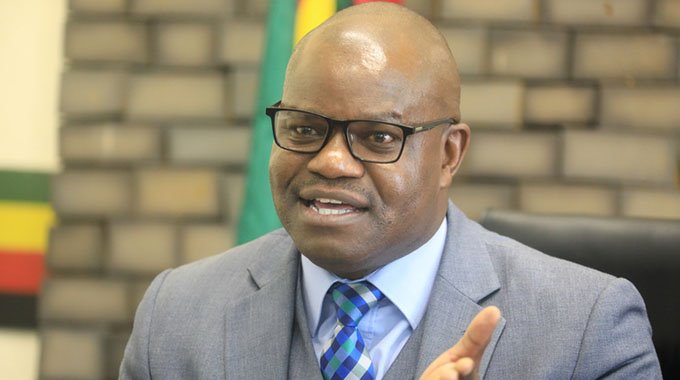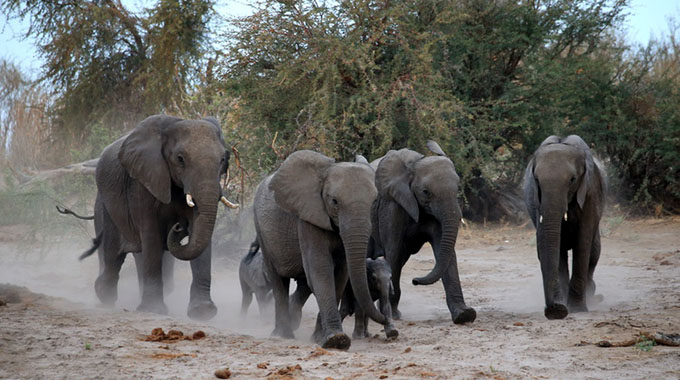EMA, council partner First Lady

Elliot Ziwira-Senior Writer
Harare City Council and the Environment Management Agency (EMA) have thrown their weight behind First Lady Auxillia Mnangagwa’s vision to rehabilitate and empower former ladies of the night, who by nature of their trade are shunned by communities, through recycling of waste.
As part of her initiative to provide sustainable and socially acceptable livelihood routes to women, the First Lady, who is also the country’s environment patron, is spearheading the trash-to-cash project, which has seen scores of former ladies of the night being taken off the streets to become part of the thriving green economy.
The objective is not only to socially align them with societal expectations through social participation, particularly where waste management is concerned, but also opening up opportunities for the ladies in the lucrative global green economy.
Other prospects have been cleared out for those in the oldest profession through the First Lady’s drive to take everyone aboard, which has seen her Angel of Hope Foundation rolling out empowerment programmes for them.
Yesterday was a momentous occasion for the women, who were recently trained by EMA in waste recycling, and were taken on a tour in Mbare and Msasa to be apprised on how they can sustain their families through what others merely consider as trash.
Thanking the First Lady for her unwavering support for women, EMA director-general Mr Aaron Chigona underlined the need for embracing green and decent jobs as part of achieving the zero-waste drive to the wasteland, and providing livelihood trajectories.
“We take this opportunity to thank the First Lady Amai Mnangagwa, who is our environment patron. As EMA, we have been working with her on a number of projects, among them, taking the clean-up to the people; ensuring that we put our hands together as a nation through her guidance.
“She decided to expand her hand into part of our community, whom we know have been surviving through a number of other options. She decided that she should take these ladies to EMA, and ensure that they also start putting their efforts in getting a living on what we call trash-to-cash,” said Mr Chigona.
The purpose of the trip, he said, was to take the ladies to a number of projects that the agency is embarking on in Harare for them to have first-hand appreciation.
One of these projects is Mbare Waste Transfer Station, a community-based enterprise started in September last year, where waste from surrounding communities is collected, separated, cleaned and sold for recycling purposes.
“From this tour, we expect these ladies to go back home with our support. We will also find a place where they should be able to start,” Mr Chigona said, emphasising that it was important for everyone to come on board in ensuring a clean environment.
“This is important because we have seen that a lot of our local authorities are overburdened as they fail to cope with the waste generated by communities. So everything that we can recycle, reuse or re-purpose should not go to our landfills, our dump-sites.”
Covid-19 notwithstanding, with the support of the First Lady, the project, envisaged to be viable, should be taken to communities. The women, who have received the brunt of societal scorn owing to their previous profession, should be able to score two crucial goals.
Besides sustaining themselves and their families through collecting and selling waste, they will be able to improve their moral standing in the communities they come from.
Self-sustenance would ensure that they debunk the stereotyping associated with their trade, thus making them socially acceptable, while at the same time playing their roles as responsible citizens.
“It is a major win for them and the environment. It is everyone’s duty to keep our environment clean and safe for everyone. It is a win for everyone,” underscored Mr Chigona.
Ms Elizabeth Rwodzi, who is the buyer at Mbare Waste Transfer Station, a 28-member enterprise comprising 22 females and six males, said they were able to support their families through recycling waste.

Mbare Waste Transfer Station group member and buyer Elizabeth Rwodzi explains how waste is collected, separated and processed before being sold for recycling in Harare yesterday. — Pictures: Edward Zvemisha
Mr Dzingai Tapera, the chairperson of the station, was upbeat that through efficient management, teamwork and dedication, under the First Lady’s support, the women would be able to reap rich rewards from trash.
The second leg of the tour took the group to The Recycling Lady, a plastic recycling company in Msasa, where the ladies’ appetite for success was whetted through impartation.
Ms Mary Wazara, the firm’s director, who has been in the business since 2008 through the support of EMA, said “trash is money”, pointing out that persistence pays out in the end.
She explained how the plastics are recycled, how quality is enhanced, and how communities can benefit through working together.
“Our project starts at the household level, as we collect some trash, and buy from surrounding areas, like Greendale, Mabvuku and Ruwa. We also involve companies as we have our people around business communities,” Ms Wazara said.
“We have a household pelletiser, which is the smallest in the class of pelletisers, and the most affordable. It has a capacity of 400kg per shift, with our shifts starting from 7am and end at 4pm.”
Taking the group along the production line, she said their other machine, the film blower, has a capacity to produce 500kg of plastic used in the manufacturing of bin-liners, bins, buckets, irrigation pipes, carrier bags and mushroom tubes.

The women said it had dawned on them that they would be able to look after their children through buying and selling refuse, and were looking forward to getting a great start in the green business through Amai Mnangagwa’s support.
Ms Wazara encouraged the women to take up opportunities availed in green business, which is trending globally, and remain optimistic and patient; as she also started as a collector.
One of the women, a grandmother of two, said she had gained a lot from the tour, and thanked the First Lady for affording her a second chance at life.
“Firstly, I would like to thank the First Lady for coming up with such an important initiative for us in Mbare. I survived through selling sex for a long time, but all that changed the first time Amai visited our community.
“I have learnt that trash is money, and each time I see someone throwing out garbage, even broken chinaware, I flinch, as I am aware that they will be tossing away money”, she said.
Another lady weighed in, saying it had dawned on her that she would be able to look after her six children through buying and selling refuse, and was looking forward to getting a great start in the green business through Amai’s support.
“It is best to pick up trash and turn it into money, instead of selling my body for cash, which is not only risky, but socially unacceptable. Now, even if I see a bottle cap or piece of cardboard, I cannot help picking it up.
“Even if people laugh at me, I have decided to change for the better, not only for me, but for my community, and I thank Amai for that introspection,” said another.









Comments